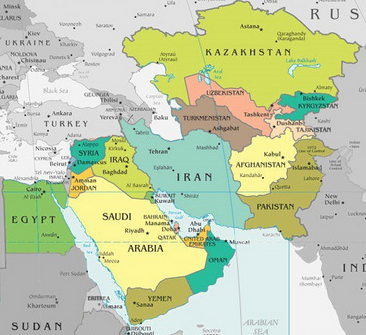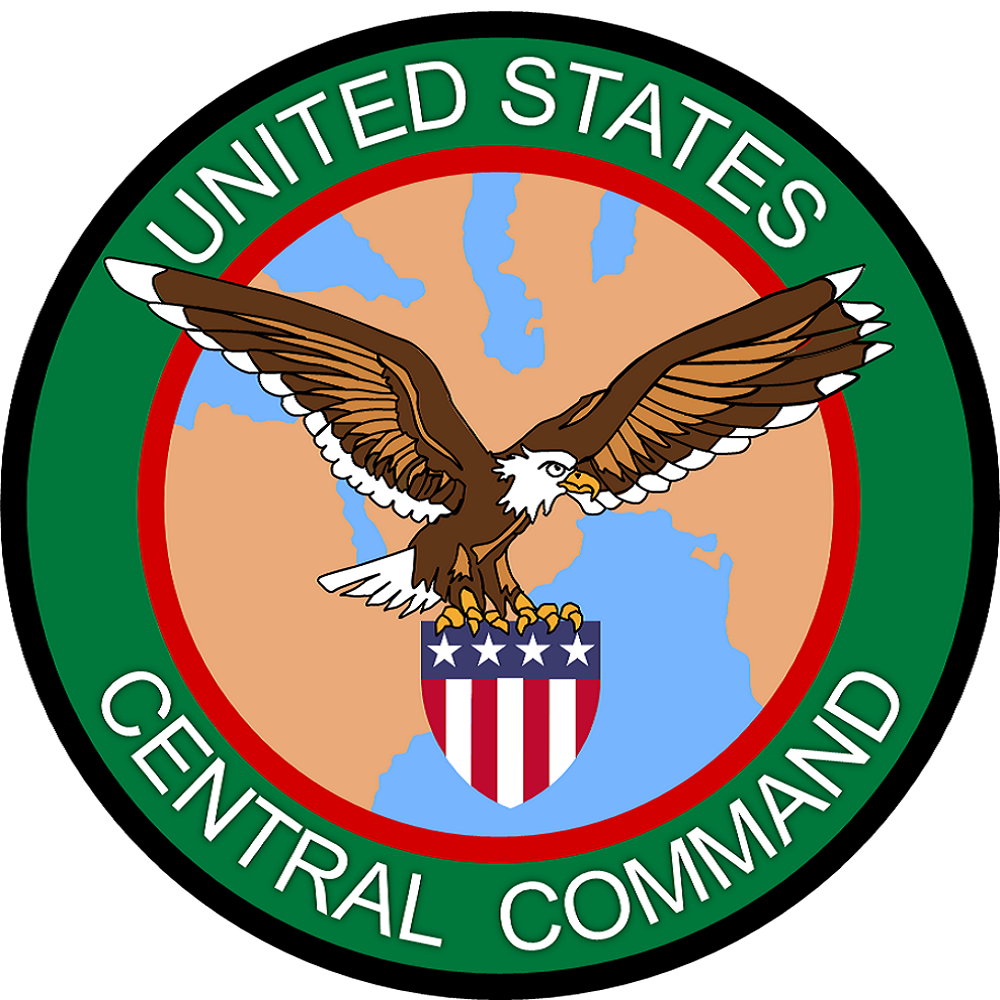US CENTCOM Commander General Kenneth McKenzie has held a keynote speech on an event of the Middle East Institute on February 8. McKenzie outlined the US military’s view on the Middle East. The full text of the speech can be read here.
New competitors in the Middle East: Russia and China
The US General implicitly acknowledges a loss of the US in the Middle East, by dedicating an important part of his speech to new influential powers in the region: The Russian Federation and the People’s Republic of China.

According to McKenzie, besides of sustaining oil trade and fighting extremism, these two Eurasian powers growing influence is one of the main reasons for US activity in the region:
“The United States faces increasing competition in the region from Russia and China, both vying for power and influence through a combination of diplomatic, military and economic means.”
Interestingly, the US General considers declining US engagement a “perception”, “exploited by Russia and China”. He states:
“In 2020, Russia and China exploited the ongoing and regional crises, financial and infrastructure needs, perception of declining U.S. engagement, and opportunities created by COVID-19 to advance their objectives throughout the Middle East.”
This of course is an implicit criticism of the general towards the US Administration: The US has not answered regional crises, has not provided for financial and infrastructure needs, has delivered the perception of engagement and stood by as COVID-19 spread around the region.
US military forced by Russia to upgrade equipment
The General argues that if the US wants to compete with Russia and China, the Middle East is one of the places to do. And explains accordingly in detail the growing Russian and Chinese influence:
“Russia seeks to undermine and disrupt U.S. influence and to reassert its own identity as a global power. Its engagement in the CENTCOM AOR is also fueled by a set of economic factors from maintaining oil production agreements to expanding Russian access to nuclear energy markets, trade and arms sales. Russian activities in the region include the establishment of an enduring military presence in Syria (…) and nearby Flamingo Bay in Sudan.”
The US General mentions even how Russian armed forces challenged the US military and forced it to deploy arms systems:
“In response to a dangerous increase in unauthorized and unsafe Russian interactions with coalition forces, CENTCOM deployed Sentinel radar and Bradley fighting vehicles to the eastern Syria security area and increased combat air patrols over U.S. forces.”
McKenzie says that “Russia will continue to challenge U.S. presence, as opportunities present themselves; positioning itself as an alternative to the West, by trying to mediate regional conflicts, selling arms without end-user-restrictions, offering military expertise and participating regional and multilateral organizations and military exercises.”
Chinese influence: Belt and Road reaches to Middle East
Concerning China’s growing influence, the US General and Commander of CENTCOM states the following:
“China’s current interests in the region are predominantly economic. China currently imports nearly 50 percent of its crude oil from the region, and it continues to cultivate trade relationships, economic investment, and comprehensive partnerships among regional states. China uses its Belt and Road initiative and the China-Pakistan Economic Corridor to expand Chinese influence and presence within the AOR. Russia and China leverage their proximity to the region, historical relations and a perceived decline in U.S. engagement to establish and strengthen opportunistic relationships. In 2021, China will continue to strengthen defense cooperation throughout the region through arms sales, exercises, and multilateral organizations such as the Shanghai Cooperation Organization, seeking to establish and strengthen trade relationships across the Middle East; prioritizing access to energy resources.”
Strikingly, the general states again “perceived decline in U.S. engagement” as one of the factors opening way for the Chinese-Russian interference in West Asia.
As countermeasures to compete with Russia and China, he proposes “border security measures, counter narcotics efforts, counterterrorism, defense, institution-building and even development assistance.”
The effectiveness of these “loft cost and often overlooked programs” against such epochal projects as the Belt and Road on the one side and Russian military presence on the other cast serious doubts, obviously in the mind of the general too, especially as the “decline of U.S. engagement” will continue in reality.
In the words of the CENTCOM Commander:
“(…) recognizing that we have a finite number of military resources available globally. So we are going to make some shifts and what we can do to help our neighbors work more closely together.”
Abraham Accords pave way to Arab NATO
Key element is the move of Israel from the European command area to CENTCOM. This is at the one side “actually bureaucratically”, on the other operational:
“At the same time, coming as it does in the wake of the Abraham Accords and what that has meant at a higher level in the region, it also gives opportunity o sort of put an operational perspective on that. It will allow further corridors and opportunities to open up between Israel and Arab countries. (…) I think in the future we would like to see, and you know, for many years this has been the aspiration of the U.S. Central Command, a collective approach to security here in the region and a collective approach to security of our friends in the region to do more themselves.” (Emphasis, YS)
In other words, the US CENTCOM wants to use the Abraham Accords to deepen military contacts between Israel and Arab countries with the goal of establishing “collective approach to security” that is more self-made. The Arab NATO project.
“Contested deterrence of Iran”
Besides of strategic competition with Russia and China, Iran remains to be one “of the drivers of instability” in the region according to the McKenzie. Its “support for terrorist organizations”, “malign activities” and influence in Iraq, which Tehran “uses as a proxy battleground against the US” are major concerns for the CENTCOM commander as well as Iran’s influence in Syria and Yemen.
But US forces until now has achieved a limited success, which the US CENTCOM Commander calls “a period of contested deterrence”, which “is not intended to be an interminable state. Rather, it sets the conditions that allow diplomats to do their work.”
Strategic cooperation with SDF in Syria
Concerning Syria, the CENTCOM Commander once again confirms the US’ cooperation with the so-called Syrian Democratic Forces (SDF), connected to the PKK which Turkey considers a terror organization.
McKenzie states that the cooperation with SDF has reached a new level: “And in July 2020, coalition forces under command of CJTF-OIR began phase four of the campaign in Iraq and Syria, transitioning from a tactical level train, advise and assist to focus on advising and enabling partner forces at the operational and strategic level.” (Emphasis by YS). The aim is to “enable SDF forces to operate independently”.
In summary, the CENTCOM is conscious of retreat perspective, faces strategic competition from both Russia and China, enduring resistance from Iran, while Washington’s hopes rest upon ties between Israel and Arab countries, small entities like the SDF and “the diplomats doing their work”.
Tampa Bay Buccaneers may be the only victory to celebrate for McKenzie
In the Q&A part of the speech, General McKenzie is congratulated for the victory of Tampa Bay Buccaneers’ in the baseball league, a team representing the “great military town” Tampa.
Given the strategic balances and rising influences, maybe the only victories that CENTCOM celebrate in the coming years will be those of “military towns” at home.

















Leave a Reply